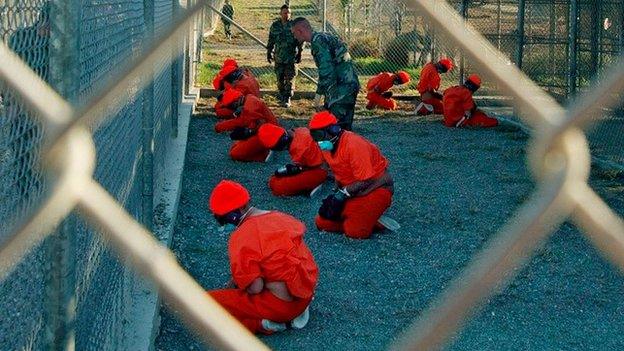Death sentence man Liam Holden: 'I was tortured into a false confession'
- Published
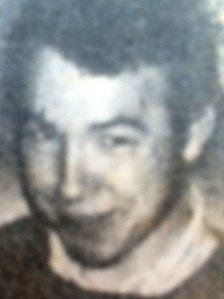
Liam Holden was 19 when he was arrested and convicted of a soldier's murder
It happened almost 40 years ago, but Liam Holden can still recall the sensation of gasping for breath as water was slowly poured on to a towel covering his face.
"That feeling will never leave me," he says.
"Even talking about it now, I get a gagging sensation in my throat."
He was 19 at the time and was being questioned by members of the Parachute Regiment about the murder of a soldier, Private Frank Bell.
He died three days after being shot in the head as he patrolled in the Springfield Avenue area of west Belfast in September 1972.
Signed statement
The teenage chef was taken from his home and brought to an army post at Blackmountain school, where he was held for almost five hours.
By the end of his time in military custody, he had agreed to sign a statement admitting he had shot the soldier.
"By the time they were finished with me I would have admitted to killing JFK," he says.
So what did the Army do during that time? Liam Holden says he was subjected to sustained torture and then threatened that he would be shot if he did not confess to the killing.
"I was beaten and they told me to admit I had shot the soldier, but I said that wasn't true because I didn't.
"Then six soldiers came into the cubicle where I was being held and grabbed me. They held me down on the floor and one of them placed a towel over my face, and they got water and they started pouring the water through the towel all round my face, very slowly," he says.
"After a while you can't get your breath but you still try to get your breath, so when you were trying to breathe in through your mouth you are sucking the water in, and if you try to breathe in through your nose, you are sniffing the water in.
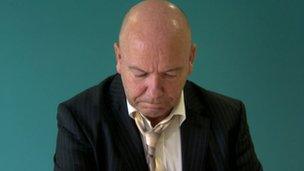
Liam Holden says those who forced him to sign the confession knew he was innocent
"It was continual, a slow process, and at the end of it you basically feel like you are suffocating. They did not stop until I passed out, or was close to passing out.
"They repeated that three or four times, but were still getting the same answer. I told them I had not shot the soldier."
Mr Holden, now a father of two, said the soldiers then changed tactics and put a hood over his head and told him he was going to be shot.
"They put me into a car and took me for a drive and said they were bringing me to a loyalist area," he said.
"I couldn't see where I was but I was in a field somewhere. One of the soldiers put a gun to my head and said that if I didn't admit to killing the soldier that they were going to shoot me and just leave me there.
"I had a hood over my head and a gun at my head in the middle of a field and was told I would be killed if I didn't admit it. There were no ifs or buts, I just said I did it.
"I didn't think about going to prison or anything like that, I just confessed to make them stop."
Alibi
The term "waterboarding" was not in use at the time, but Mr Holden's description of what happened to him, which he outlined in court at the time, are remarkably similar to the accounts of others who claim to have been subjected to the same form of torture by the CIA in recent years.
Although Mr Holden had an alibi for the time of the shooting, and the only evidence against him was the confession he said he had been forced to sign, he was convicted.
"They knew I did not shoot that soldier, they knew. There was no evidence whatsoever apart from that statement that I signed," he says.
He was released from prison in 1989 after serving 17 years. Since then, he has campaigned to clear his name and the Criminal Cases Review Commission, which was established to investigate possible miscarriages of justice, referred his case to the Court of Appeal.
The commission took the decision based on new evidence and doubts about "the admissibility of reliability" of his confession.
Some of the new material included evidence discovered by a Guardian journalist, Ian Cobain, that water torture was used by the British military at the time, despite repeated denials. The journalist was an expert witness for Mr Holden's legal team.
Last month, Mr Holden was granted permission to appeal after the Public Prosecution Service said it would not oppose the move. A spokesman for the PPS said its decision was based on confidential evidence compiled by the Criminal Cases Review Commission which had not been available to prosecutors at the time of the trial.
"The court of trial was therefore deprived of relevant material that might have led to a different outcome on the question of the admissibility of the incriminating statements, which were the sole basis of the conviction," the spokesman added.
"In those circumstances the director concluded that it would not be appropriate to oppose the appeal."
Liam Holden said he lost his family as well as his liberty during those 17 years in jail.
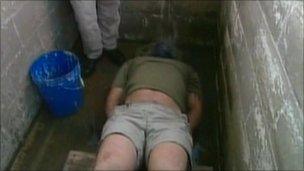
A reconstruction of so-called water boarding
"I have five brothers and five sisters, but I don't really know them. The older ones moved on, got married and had their own families while I was in jail. The ones who were younger than me when I was sent to prison didn't get the chance to get to know me."
His mother died a year after he was released, and his father a short time later.
"I'm just sorry they aren't around to see the outcome of this appeal, to see the stigma removed from my name. That is what this is about. I have never mentioned money at any stage. This is just about being found not guilty and that's all it is, that is more important than any compensation they could ever think of offering me."
What about the soldiers who tortured him and forced him to sign the confession that led to his conviction?
"I would just like one of them to admit it, to acknowledge that they subjected me to what I have said they did. I think that would be almost as good, in my own mind, as the judge saying 'Sorry Mr Holden but you were not guilty," he said.
- Published21 June 2012
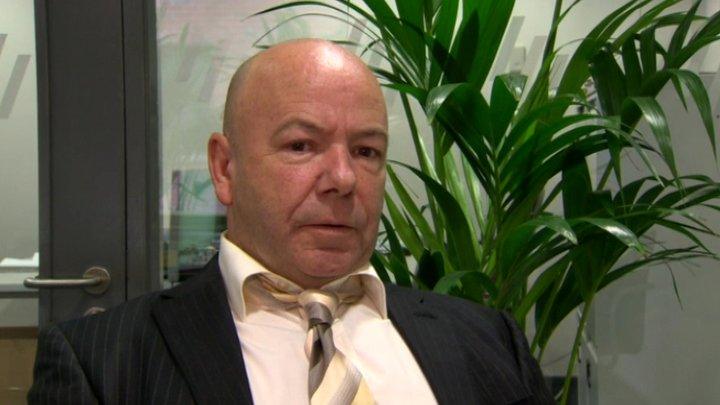
- Published10 December 2014
